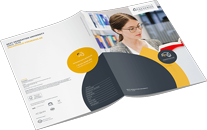Karlshochschule International University
Private UAS located in Karlsruhe (Baden-Wuerttemberg)
| Founding Date | 2005 |
|---|---|
| Fields of Study | Marketing, International Management, Humanities, Communication Sciences |
| Degrees | Bachelor of Arts |
| Students | 474 (WS 2020/2021) |
| Contact |
Course offerings
Bookmarks
Your list of bookmarks is empty. Click to add and compare.

 DE
DE  This provider offers free info materials to download or send. Would you like to be redirected to the provider's website? There you will find much more information about the course.
This provider offers free info materials to download or send. Would you like to be redirected to the provider's website? There you will find much more information about the course.
Advisory Service
Questions for the private university Karlshochschule International University? Ask your question here, even anonymously. An employee of the university or the editorial team will answer you.
or post as a guest